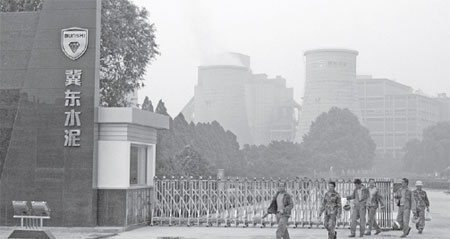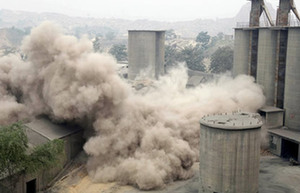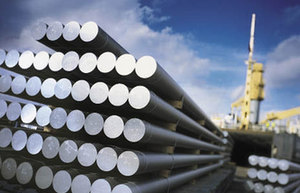 |
|
Jidong Development Group plans to join with other overcapacity businesses in China to tap African markets. Provided to China Daily |
Justin Yifu Lin, former World Bank vice-president and an economics professor at Peking University, said that Africa holds "incomparable" advantages for the transfer of China's labor-intensive businesses. The continent is also the "last stop" in the relocation of global manufacturing.
Africa, which is rich in natural resources, is crying out for project construction and has 1 billion consumers, he said.
"This year, we will extend our overseas business into Zambia with a cement plant producing 2 million tons a year, and to Lesotho and Mozambique," Tao said. The group has also signed deals to build cement plants in Malaysia, Myanmar and Vietnam with combined annual output of 9 million tons, Tao said.
"Jidong is in a position to help Hebei province relocate 10 million tons of cement production this year. South Africa has huge demand for cement of about 15 million tons a year. That's growing at 3 to 5 percent a year, driven by the national development plan, which includes building roads, power stations and bridges, along with the booming real estate industry."
South Africa has been producing 12 million tons of concrete a year and the gap has been met with imports, he said. "The market will not be saturated until 2020 or later."
All of Africa needs Chinese cement, Tao said. Limestone is a key ingredient of cement, and Mamba Cement has deposits of about 100 million tons.
South Africa's leading cement supplier, Pretoria Portland Cement Co Ltd, has not upgraded its production lines for 30 years, he said.
"That's driven up its costs and taken the price of its cement to about 1,400 rand a ton. Once our plant is up and running, our wholesale price will be just 900 rand a ton," he added.
PPC is burdened by heavy debt, and it is possible Jidong will eventually take it over, which would increase the latter's limestone deposits, he said.
Cement produced at the Mamba plant will be sold mainly in and around Johannesburg, an economic hub for the continent.
The Limpopo plant is about 80 km closer to the market than other local suppliers, so that means Mamba Cement can save 80 to 160 rand a ton, which is a huge advantage, Tao said.
|
 |
 |
| Long way to tackling overcapacity | Overcapacity reduction targets raised for 2014 |
